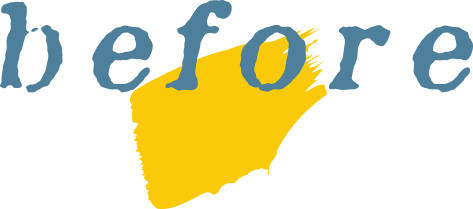Any corporate context is formed in its fundamental essence by the relationships that develop and define it. And every human relationship is based on the presence (or lack) of trust.
This is why it is so important to know how to evaluate, support, improve and develop trust in the workplace. This will lead to a positive and performing work environment.
According to 2016 research by Paul Zak, director and founder of the Center for Neuroeconomics Studies, people from a high-trust corporate culture have demonstrated:
- 74% less stress
- 106% more energy
- 50% more productivity
These results derive from the fact that relationships of trust affect every level of the company structure, both horizontally between colleagues and towards the company itself. In fact, trust management brings relationships back to a human and personal rather than a technical-administrative level, making people feel more included, involved and secure, strengthening the ties and commitment of individuals.
But how do you develop a soft skill like trust, which by definition is based more on instinct than logic? Our trust management trainings work mainly on two aspects, which are developed in the classroom through practical rather than theoretical exercises, allowing people to directly experience the effects and benefits of this practice.
The first principle that is first described and then implemented is that of reciprocity. According to Henry L. Stimson, an American politician of the last century, “The only way to make a person trustworthy is to trust him”. In fact, those who trust receive trust. For this reason, it is the task of managers to learn how to place trust in their collaborators through concrete actions and clear and effective communication that conveys a sense of recognition.
The other principle that we apply in our trainings is that of the emotional bank account, theorized by Stephen Covey, which refers to the amount of trust that has been created, over time, in a relationship. As mentioned, trust is not something that can be imposed or assumed on a biased basis, but it is a gradual process based on the constant demonstration of concrete behaviors and actions. A practical example is that of demonstrating, over time, punctuality and honesty. These behaviors are defined as “deposit behaviors” and increase the emotional current account. On the contrary, harmful behaviors such as the lack of respect for deadlines are defined as “withdrawal-behaviours” and go to undermine the reservoir of trust that is established in the relationship. Fortunately, with time and consistency, the tank can always fill up again.
Any corporate context is formed in its fundamental essence by the relationships that develop and define it. And every human relationship is based on the presence (or lack) of trust.
This is why it is so important to know how to evaluate, support, improve and develop trust in the workplace. This will lead to a positive and performing work environment.
According to 2016 research by Paul Zak, director and founder of the Center for Neuroeconomics Studies, people from a high-trust corporate culture have demonstrated:
- 74% less stress
- 106% more energy
- 50% more productivity
Questi risultati derivano dal fatto che i rapporti di fiducia interessano ogni livello della struttura aziendale, sia orizzontalmente tra colleghi che nei confronti dell’azienda stessa. Il trust management riporta infatti le relazioni su un piano umano e personale anziché tecnico-amministrativo, facendo sentire le persone più incluse, partecipi e sicure, fortificando i legami e il commitment degli individui.
Ma come fare per sviluppare una soft skill come la fiducia, che per definizione si basa più sull’istinto che sulla logica? I nostri training di trust management lavorano principalmente su due aspetti, che vengono sviluppati in aula tramite esercitazioni pratiche più che teoriche, permettendo alle persone di sperimentare direttamente effetti e benefici di questa pratica.
Il primo principio che viene prima descritto e poi messo in atto è quello della reciprocità. Secondo Henry L. Stimson, politico americano del secolo scorso, “Il solo modo di rendere affidabile una persona è di avere fiducia in lei”. Di fatto chi dà fiducia riceve fiducia. Per questo è compito dei manager apprendere come riporre fiducia nei propri collaboratori attraverso azioni concrete e una comunicazione chiara ed efficace che trasmetta un senso di riconoscimento.
L’altro principio che applichiamo nei nostri training è quello del conto corrente emozionale, teorizzato da Stephen Covey, che si riferisce alla quantità di fiducia che si è creata, nel tempo, in una relazione. Come detto la fiducia non è qualcosa che si può imporre o assumere per partito preso, bensì è un processo graduale basato sulla dimostrazione costante di comportamenti e azioni concrete. Un esempio pratico è quello di dimostrare, nel tempo, puntualità e onestà. Tali comportamenti vengono definiti “comportamenti-deposito” e vanno ad incrementare il conto corrente emozionale. Al contrario comportamenti dannosi come la mancanza di rispetto delle scadenze sono definiti “comportamenti-prelievo” e vanno ad intaccare il serbatoio di fiducia che si instaura nel rapporto. Per fortuna col tempo e la costanza il serbatoio può sempre tornare a riempirsi.
Altri articoli
How to get the most out of synergies thanks to collective intelligence
Every group, as we know, forms within itself an entity that is greater than the sum of its parts. But how is it possible to exploit this added value without it becoming, as often happens in the company, a dispersive and inefficient movement? One of the simplest and...
Reduce accidents by changing the perception of the concept of safety
Several studies have shown that business accidents are due in 80% of cases to human errors. Starting from this data, it is obvious that to reduce injuries it is more appropriate and effective to start from the analysis of human behavior, to then understand how to...
How to turn others from enemies into allies
According to Alfred Adler, one of the fathers of psychology, almost all our problems derive from interpersonal relationships: if you think about it, all our emotions derive from something that, from our point of view, does not work in relationships with others. In the...
How to break free from competitiveness with colleagues
We have all perceived, at least once in our life (and perhaps much more than one) a sense of competitiveness; in reality, if you pay attention to it, you will find that competitiveness affects us in almost all life situations, from social ones, in which we want to...
Enhance intuition in the company thanks to the Management Constellations
What do Barak Obama, Albert Einstein and Elon Musk have in common? It goes without saying that they are characters of great intelligence, but what really unites them is their great capacity for intuition. Why is intuition important in the company? Intuition is...
How to write great emails
We now manage them automatically, every day, constantly; they are part of our life, of our routine, they determine our way of working, our relationships, our communication. Yet we don't give them so much importance, sometimes we respond automatically and open them...
Courage in the company: the key to your success
"Having courage" in your business environment means much more than "throwing yourself" or "taking risks", having courage is a concept that has a profound value, it has to do with our identity and the meaning it has for we our life in terms of personal fulfillment. An...
Mindfulness as a resource to work better and with less effort
In recent years you have often heard about mindfulness and the benefits it brings, both personally and professionally, for those who practice it consistently. But exactly why can it be beneficial for our well-being in the workplace? What concrete benefits can it bring...
Developing well-being in the company through emotional intelligence
Everyone talks about IQ, but there is another type of intelligence, equally important because of its enormous impact on our well-being and our decisions: emotional intelligence.First theorized in 1990 by Daniel Goleman, IE can make a difference in the workplace,...
Stop to go faster: how smart breaks can boost productivity
Let's face it: in 2022 the idea that to get the most we must squeeze as much as possible for eight consecutive hours (or more) is no longer credible.Numerous studies confirm that an employee engaged for 8 consecutive hours will see his performance curve drop...











